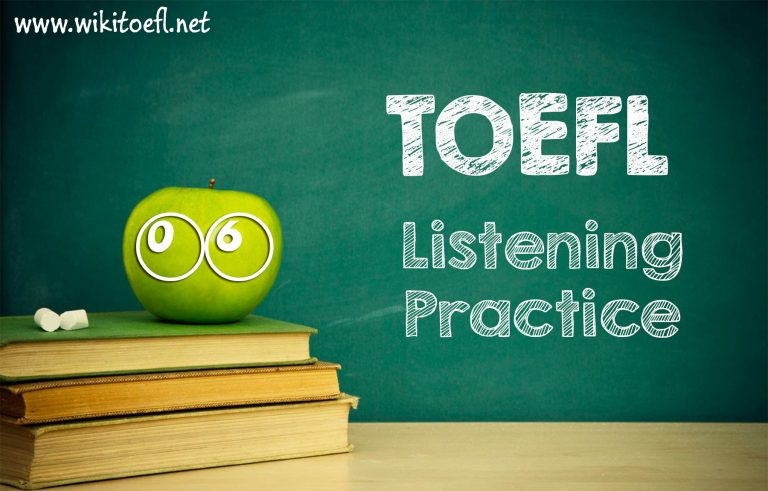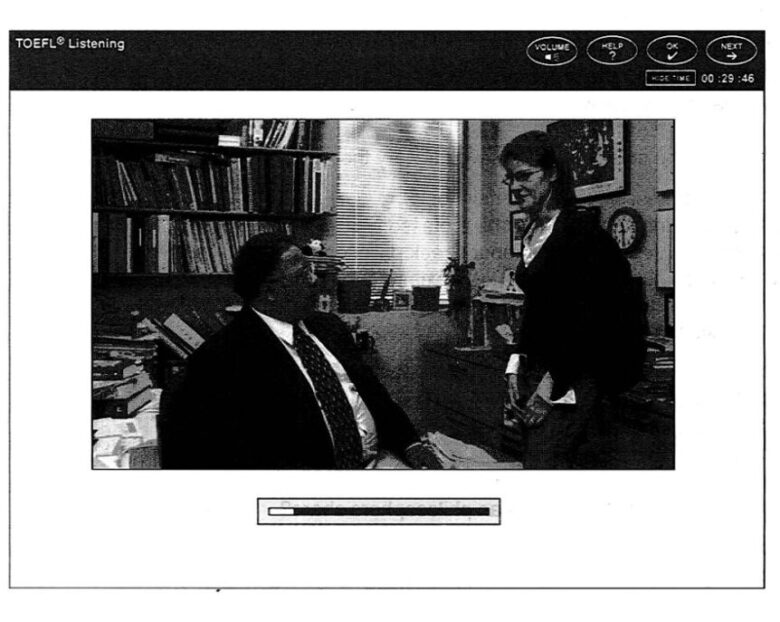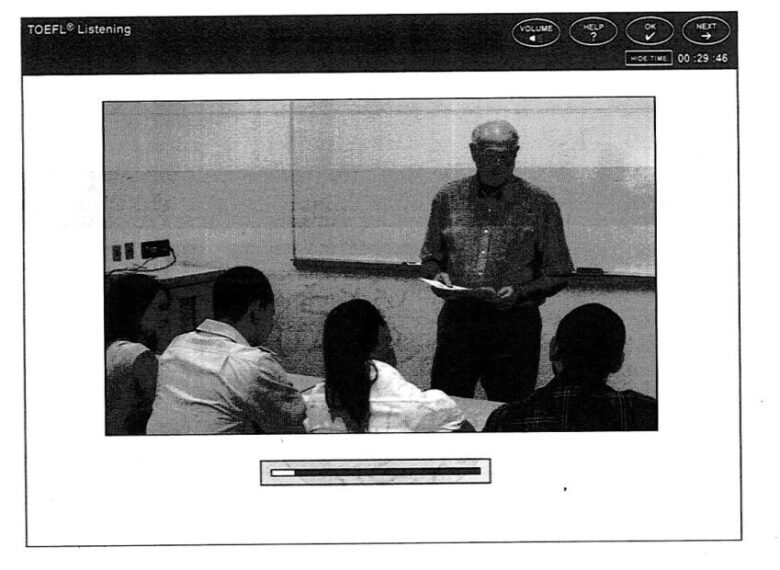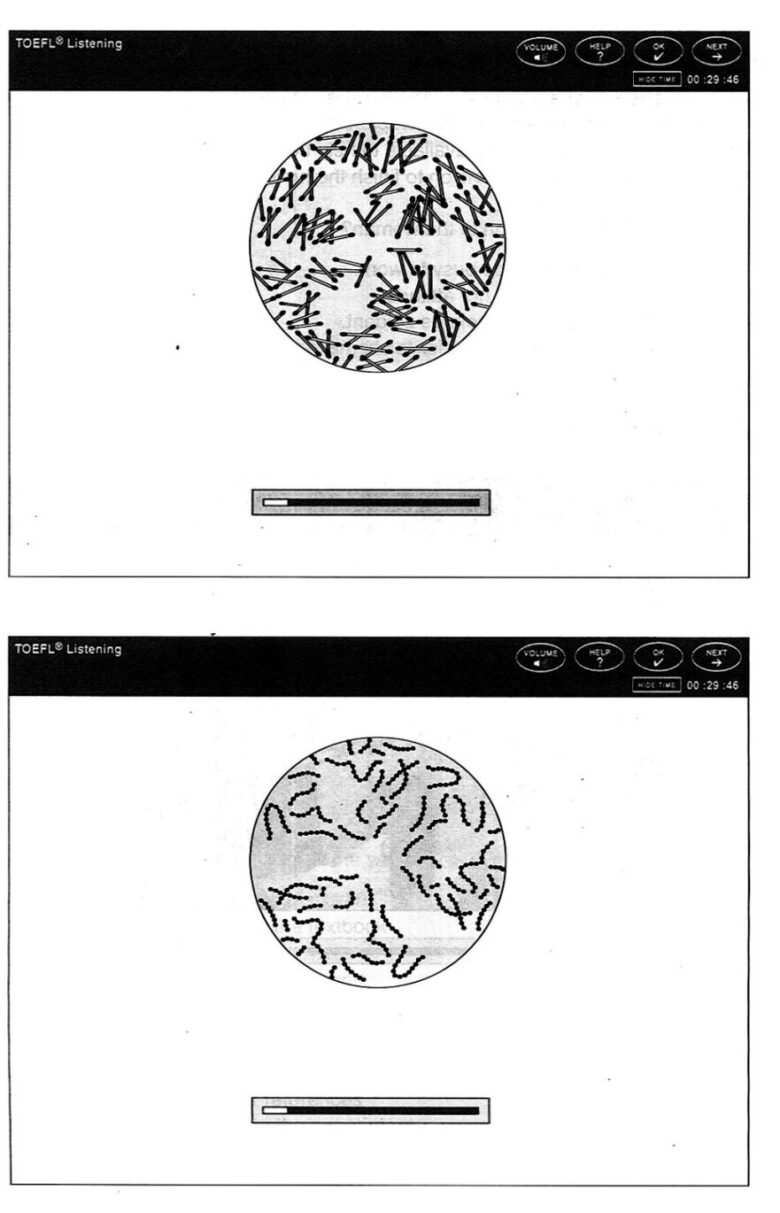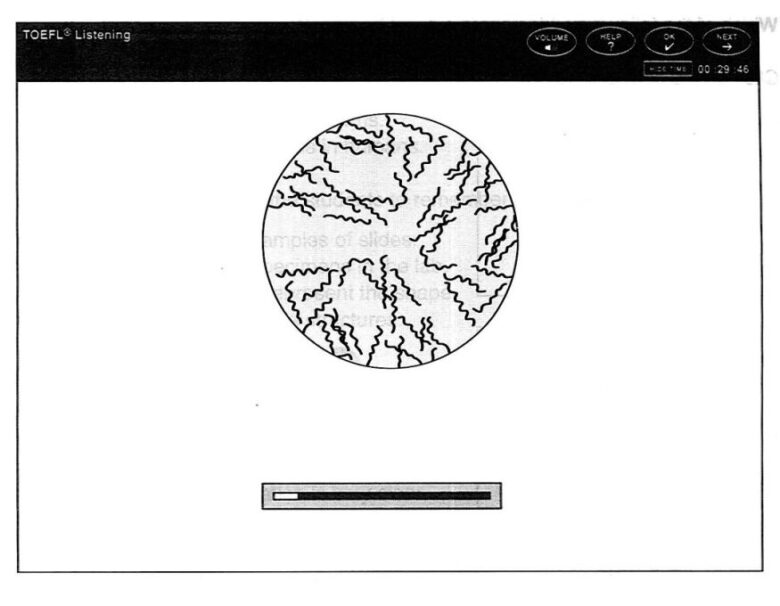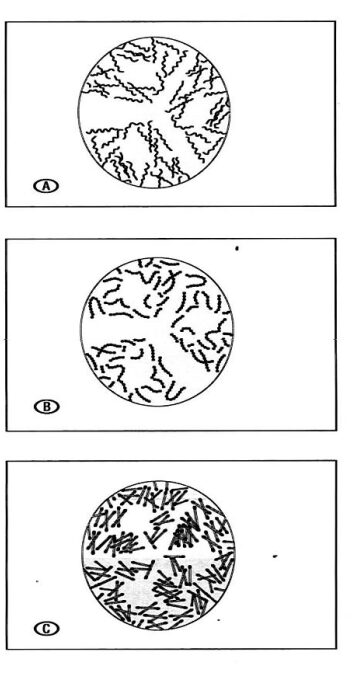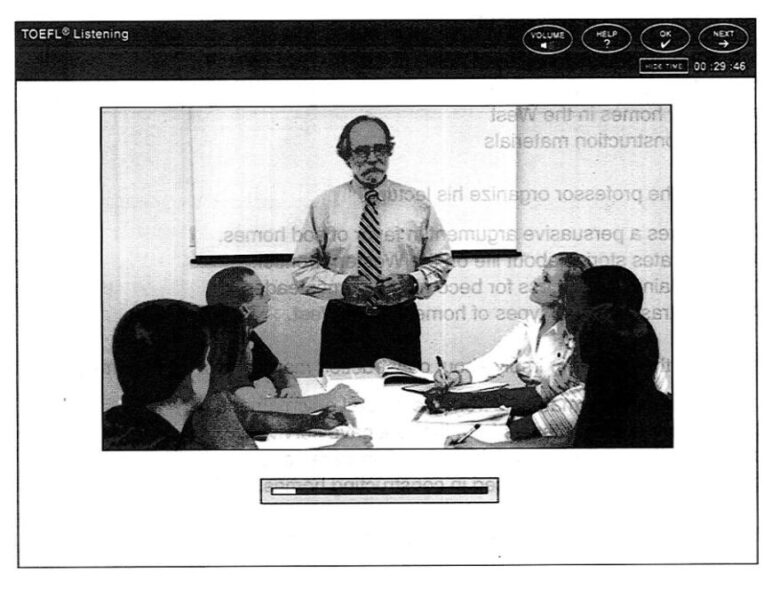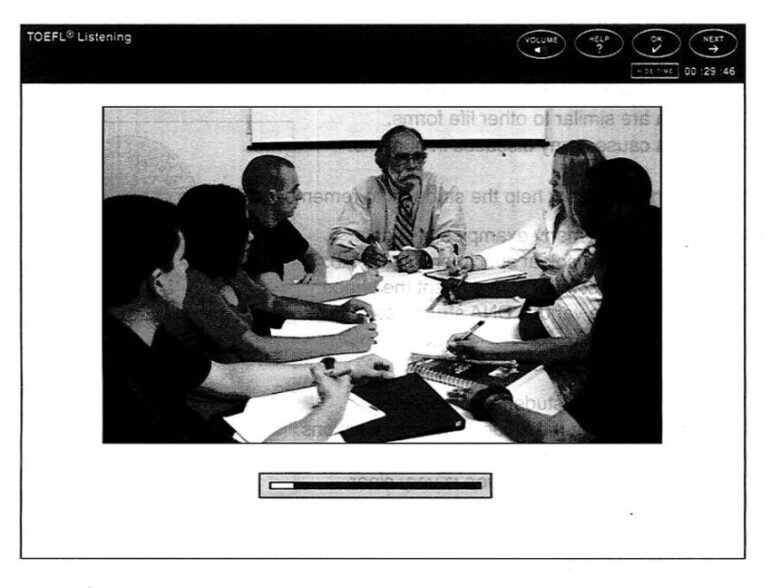Listening 4 “Professor’s Office”
18. Why does the woman want to talk with her professor?
CD She wants to make an appointment outside of office hours.
CD She needs to get him to approve the topic for her research.
CD She has some questions about the report she is writing.
CD She would like a recommendation for a job in the lab.
19. What advice does the professor give the woman?
CD Have some friends read the research
CD Refer to the explanation in the textbook
CD Ask a chemistry major to help her
CD Include more references in the report
20. What does the professor offer to do?
CD Read a draft of the report before she submits it
CD Help her find some better references
CD Show her how to complete the experiment
CD Give her a job in the laboratory
21. Why does the professor say this:
CD He realizes that she won’t have time to revise the report.
CD He is concerned that she will not complete the research.
CD He recalls that he will not be available to help her.
CD He wants her to get an extension to finish the project.
22. What is the professor’s opinion of the woman?
CD He assumes that she is too busy to work.
CD He is very impressed with her attitude.
CD He thinks that she is not a serious student.
CD He wants her to change her major to chemistry.
_________________________________________________
Listening 5 “Biology Class”
23. What aspect of bacteria is this lecture mainly about? –
CD How microscopic organisms are measured
CD The use of bacteria for research in genetics
CD Diseases caused by bacterial infections
CD The three major types of bacteria
24. Which of the following slides contain cocci bacteria?
Click on the correct diagram.
25. Which two characteristics are common in bacteria?
Click on 2 answer choices.
A. They have one cell.
B. They are harmful to humans.
C. They reproduce quickly.
D. They die when exposed to air.
26. Why are bacteria being used in the research study at the university?
CD Bacteria have unusual cell formations.
CD Bacteria live harmlessly on the skin.
CD Bacteria are similar to other life forms.
CD Bacteria cause many diseases in humans.
27. How does the professor help the students to remember the types of bacteria?
CD He shows them many examples of slides.
CD He tells them to look at specimens in the lab.
CD He uses the first letter to represent the shape.
CD He explains the various DNA structures.
28. Why does the professor say this:
CD He is showing the students some slides.
CD He does not want the students to ask questions.
CD He wants the students to pay attention.
CD He thinks that the information is very clear.
__________________________________________
Listening 6 “History Class”
29. What is the lecture mainly-about?
CD Provisions of the Homestead Act
CD How to construct a log cabin
CD Frontier homes in the West
CD Early construction materials
30. How does the professor organize his lecture?
CD He makes a persuasive argument in favor of sod homes.
CD He narrates stories about life on the Western frontier.
CD He explains the process for becoming a homesteader.
CD He contrasts several types of homes in the West.
31. What does the professor imply about construction materials for early homes?
CD Settlers used the materials from the natural environment.
CD Not many of the materials from that era have survived.
CD Most of the supplies had to be shipped in by railroad.
CD Wagons and tents were used in constructing homes.
32. What is the evidence for the inexpensive price of a sod home?
CD Short stories and novels
CD Letters written to relatives
CD Newspaper advertisements
CD Personal records and accounts
33. Why does the professor say this:
CD To criticize the sod house
CD To demonstrate uncertainty
CD To draw a conclusion
CD To uphold an opinion
34. In the lecture, the professor identifies attributes for different frontier homes. Indicate whether each attribute refers to a sod house or a log cabin. Click in the correct box for each phrase.
Sod House Log Cabin
A. A mud roof
B. A rock foundation
C. Chinked walls
D. Notching techniques
E. Thick brick insulation
You can find Solution at here: Solution for Listening Practice Test 06

